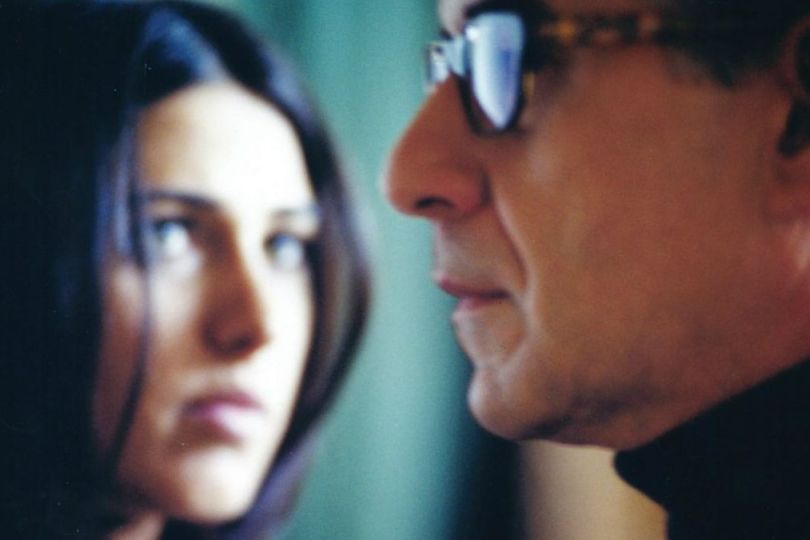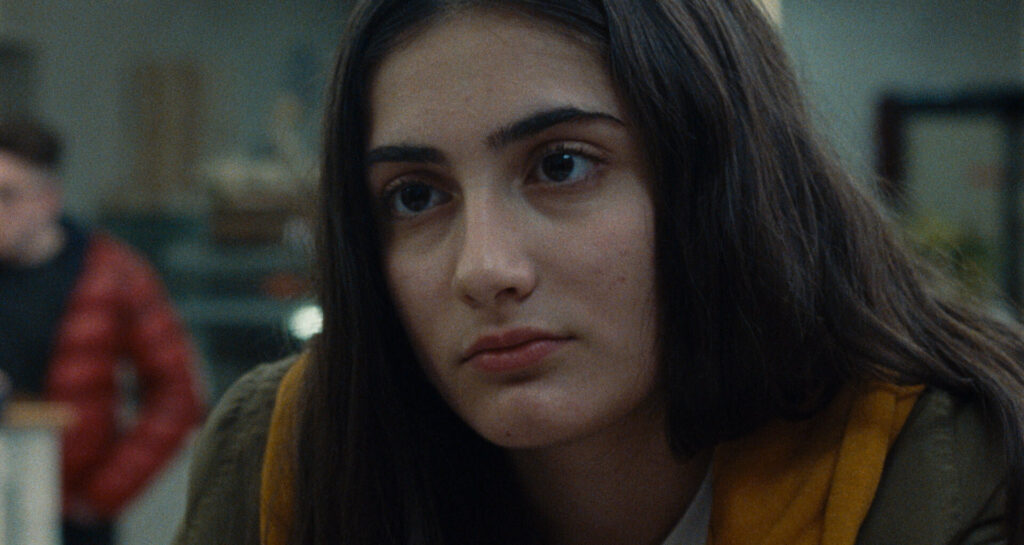MUBI
Mubi started off as The Auteurs back in 2007, but changed their name in 2010 as they were looking to expand globally and wanted a simple to say, simple to spell name that would work in any language. Initially they were a small scale streaming service showing a curated range of quality films, but gradually expanded. They showed a rolling range of films that were each on the service for 30 days, with the film that had been on the service for 30 days dropping off and a new Day 1 film being added. From there they moved into film distribution, earlier this year acquiring the Match Factory art house distribution company. They have also opened up a library of their films on the streaming platform, where they now have a fantastic range of International and specialist films of all types, as well as showing the latest films they are distributing to cinemas on the streaming platform.
Mubi may not be the cheapest streaming service, with an annual fee of £95 (after a free month trial), but it is also not the most expensive and, as the cliche goes, you get what you pay for. If international and “art house” (whatever that means) cinema are what you are after, Mubi is a must have streaming service.
Now, I was somewhat under pressure to do a piece on Bertolucci’s adaptation of Paul Bowles novel The Sheltering Sky but, much as I like Bertolucci, that film doesn’t work for me. Sumptuously filmed, but style towers over substance…the film is shallow and boring. But that is just my take, someone else can argue otherwise.
That did get me thinking though. Bertolucci was the last of the great generation of Italian directors who were at their peak in the 60’s, 70’s and early 80’s which included the likes of Antonioni, Pasolini, Visconti and Fellini. Peak Bertolucci was his 1987 epic The Last Emperor, which won a slew of awards around the world including two oscars, one for Best Director. After that, it was the law of diminishing returns for both Bertolucci and Italian cinema in general, which slipped into the doldrums as the 80’s wore on.
So I would like to concentrate on a couple of Italian films that are streaming on Mubi, which focus on Italian cinema today. The first is a film from 2005, from Paolo Sorrentino, one of the key figures in the rennaisance of Italian cinema: the second is a film which is out right now. Both are films that concern the mafia, but not as we would expect mafia films to be. In some ways they could be said to tell the flip side of each other’s stories.
The Consequences of Love (2005) Dir: Paolo Sorrentino

As Titta (Toni Servillo) watches impassively through the window of his hotel room, a suited man in the traffic island below, distracted by the sight of a passing woman, walks smack bang into a lamppost. With simple economy, this scene near the beginning of Paolo Sorrentino’s The Consequences Of Love (Le Conseguenze dell’Amore) establishes several key features of the film, for it encapsulates Titta’s status as an aloof observer, cocooned from the “street level” of everyday human affairs, as well as affording an early glimpse of the catastrophic disorder that desire can bring.
There is no room in Titta’s life for disorder. Neat and fastidious, with a greyly lugubrious air, he has lived a quiet exile in the same Swiss hotel for eight long years, estranged from his wife and children in the south of Italy, rarely talking to anybody, or venturing out, resolutely ignoring the civilities of bartender Sofia (Olivia Magnani), occasionally playing cards with a once-wealthy couple (Raffaele Pisu, Angela Goodwin), who have fallen on hard times, and always paying his expenses with perfect punctuality. It is a life dominated by clockwork routine, in which nothing out of the ordinary ever happens and the future already seems set in concrete. Even if the hotel manager wonders what his permanent guest actually does for a living, Titta is a master at guarding his secrets to the grave. Until, that is, he plunges feet first into a romance with Sofia and nothing can ever be the same again.
From the start, Titta’s evasive taciturnity makes him an enigmatic figure, so that viewers are immediately drawn into the other characters’ curiosity about his person and circumstances. Sorrentino has crafted an assured mystery, first focusing on the minute details of Titta’s strange entombment in the hotel, isolated, bored, and unable even to sleep, before slowly importing thriller elements, with some deft twists and, ultimately, life-or-death suspense. Yet what gives the film its dramatic power is that the criminal plot, which eventually emerges, is as understated as the central character, and so complements, rather than displaces, the very human story of Titta’s living death, sentenced to stay in a place of transit and wait in silence.
Servillo, who is something of a muse for Sorrentino, starring in a number of his films, including The Great Beauty, offers a performance of perfectly controlled containment, setting the tone of cool, sterile surfaces, shrilling underneath with nervous tension. Shot mostly within the hermetic confines of the hotel, The Consequences Of Love gives Titta’s claustrophobia and alienation a vividness that is only enhanced by cinematographer Luca Bigazzi’s vertiginous camera angles and Pasquale Catalano’s disorienting triphop soundtrack. For in the end, as in the beginning, Titta is a prisoner, fixed in place and unable to escape, his only small consolation being his faith, unwavering, if highly questionable, in his fellow man.
This is a tense, tragic portrait of a life suspended.
A Chiara (2022) Dir: Jonas Carpignano

At the risk of incurring the Wrath of Morrish, I am going to call this a coming of age drama.
It is Giulia’s (Grecia Rotolo) 18th birthday. Claudio (Claudio Rotolo) and Carmela (Carmela Fumo) are throwing a big party and all the family are invited. Amongst them is 15-year-old Chiara (Swamy Rotolo), the younger sister, who has all the usual concerns for a girl her age. Glued to her phone, full of attitude, sneaking out for a sly cigarette when no one is looking. But for all that she loves her close-knit and loving family, particularly her soft spoken and emotional father. This all changes the next day when her father goes missing. Faced with a wall of silence, she’s determined to uncover the truth.
While the story of A Chiara is as old as the hills, the way writer/director Jonas Carpignano approaches the subject is captivating. Building on the themes of his earlier film A Ciambra (also on Mubi and highly recommended), we witness events through adolescent eyes. Mixing blissed out neon hues with off-kilter cinematography, A Chiara does a great job of gradually building up a complex narrative. Affording it an almost dreamlike quality. The acting is superb, especially from Swamy, and the casting choices really work in its favour. A truly mesmerising coming-of-age crime story.